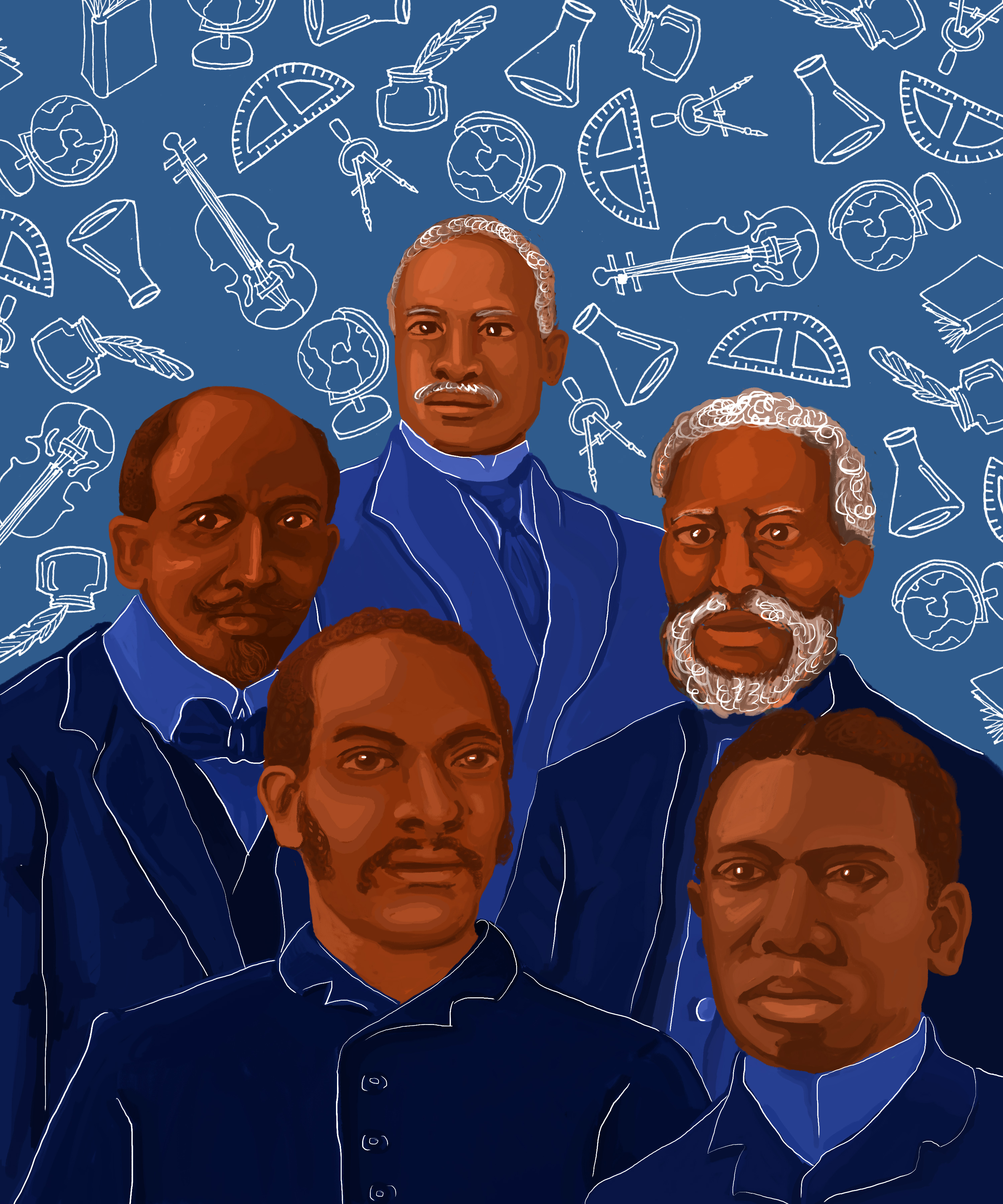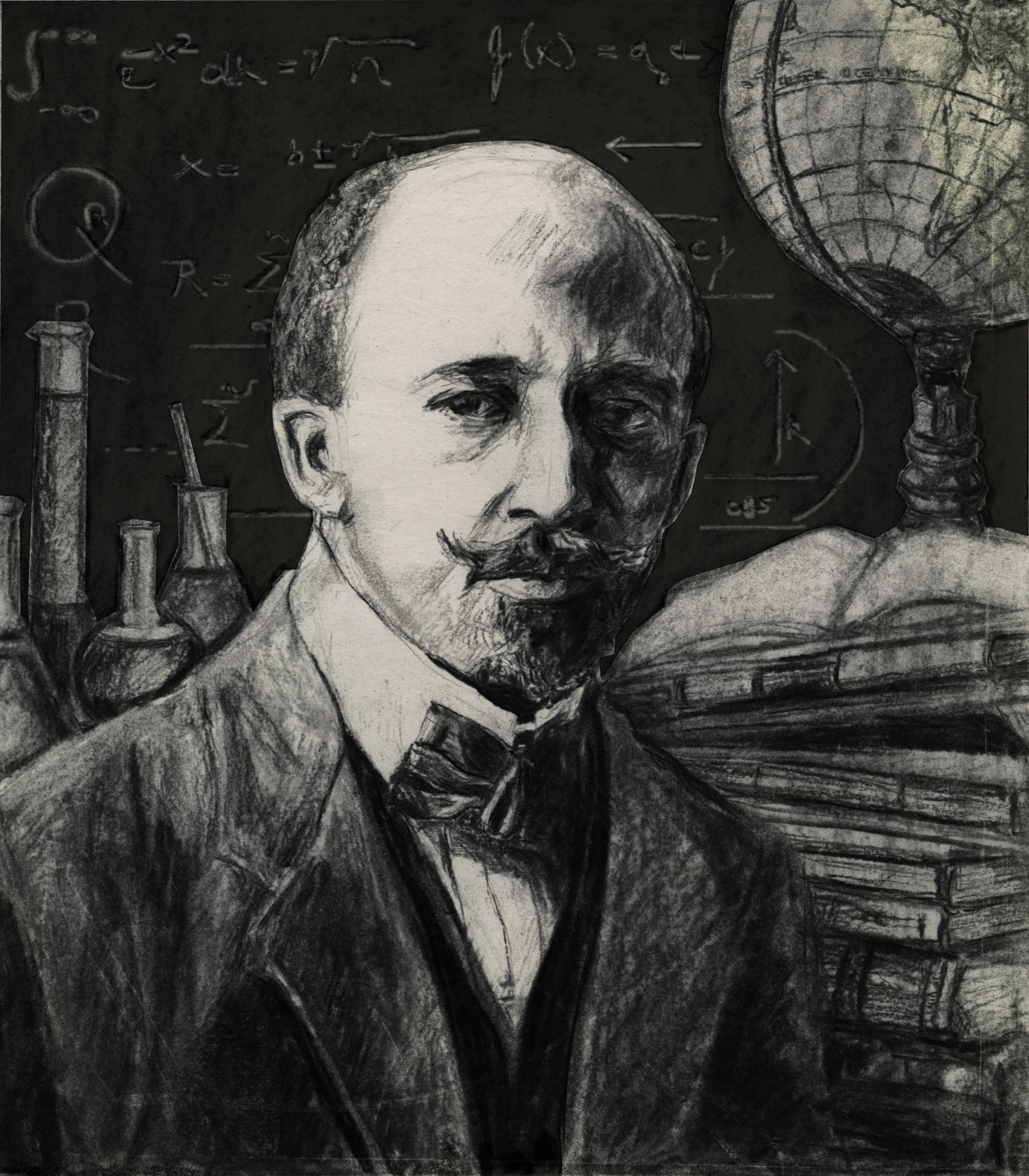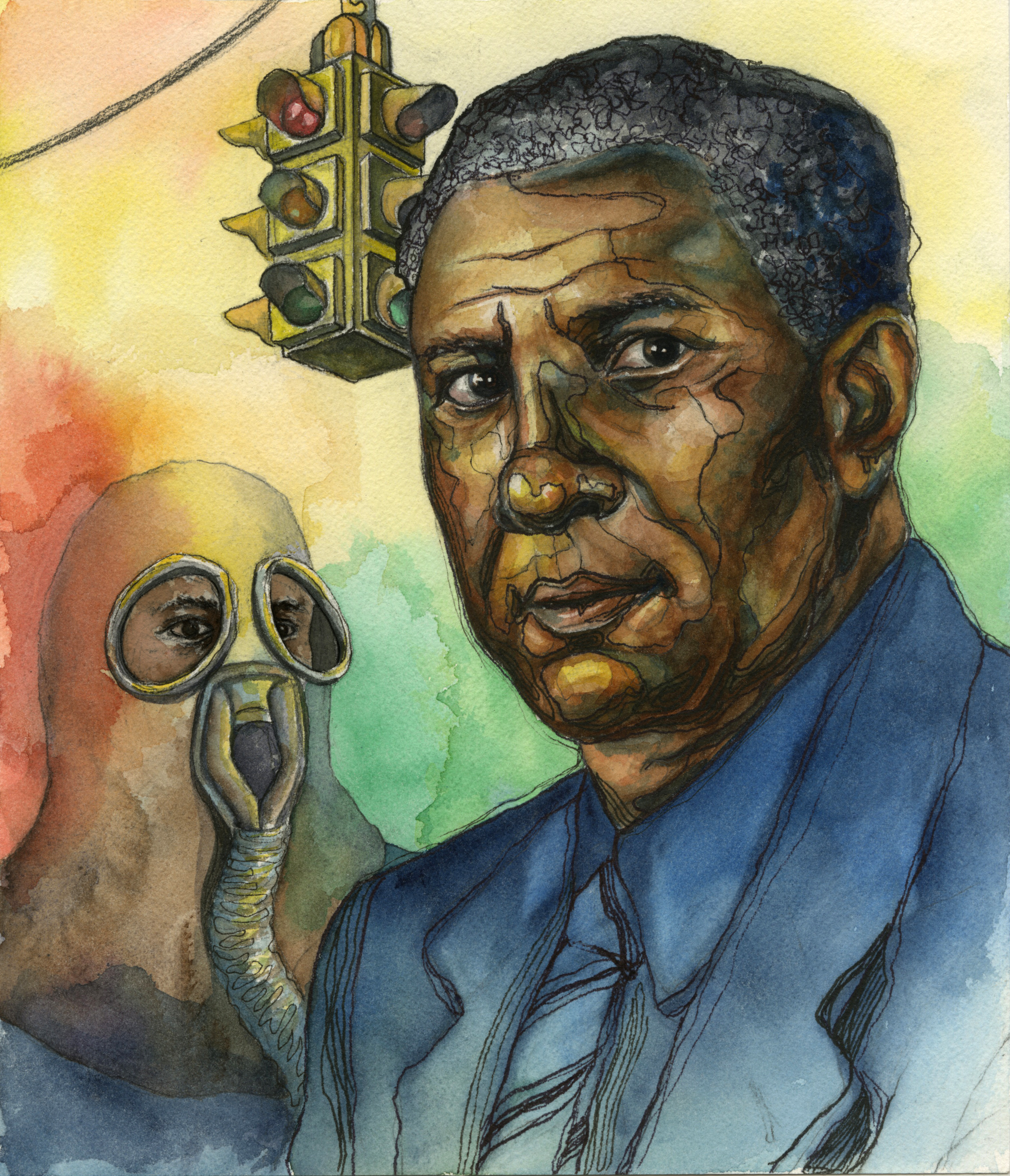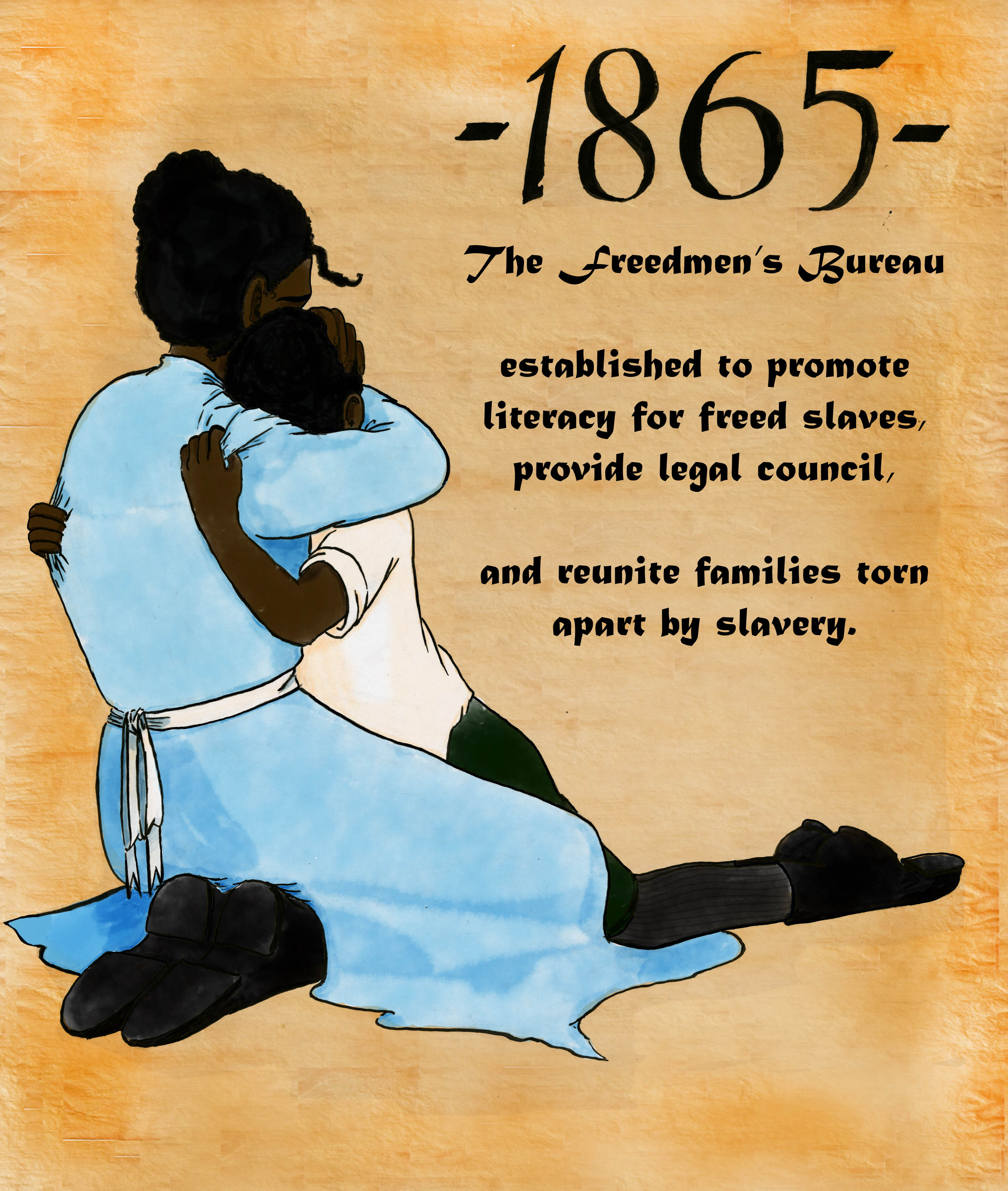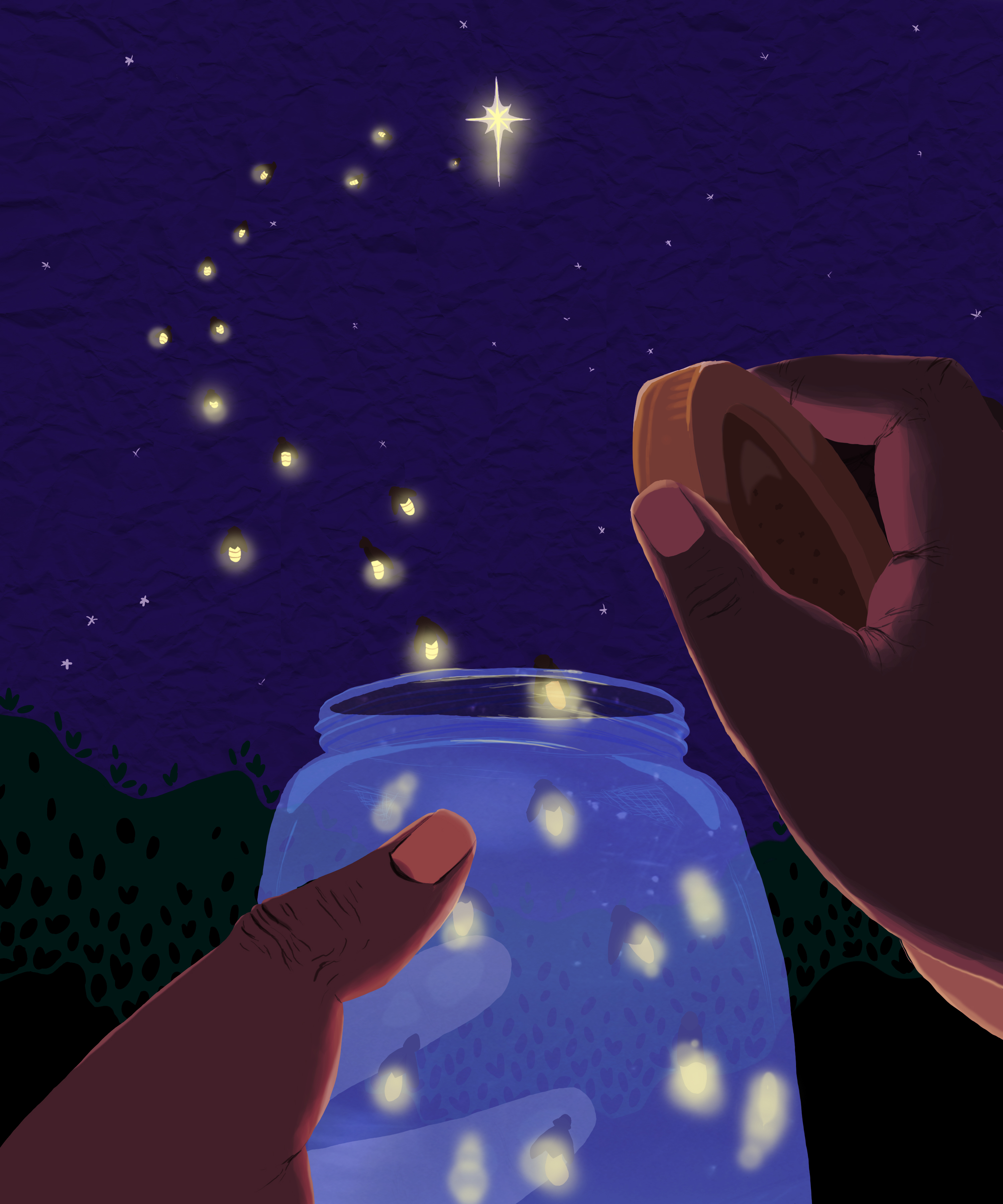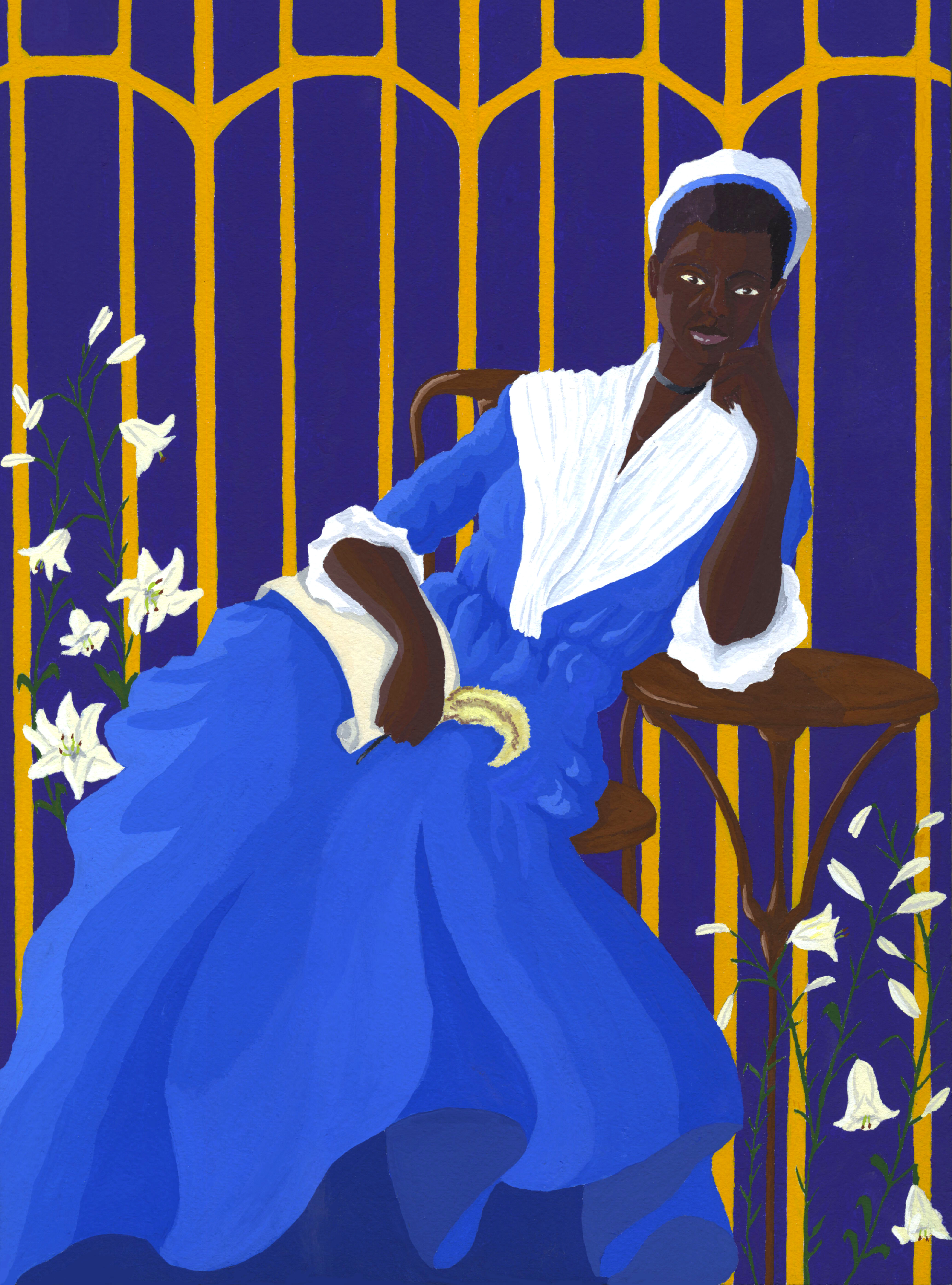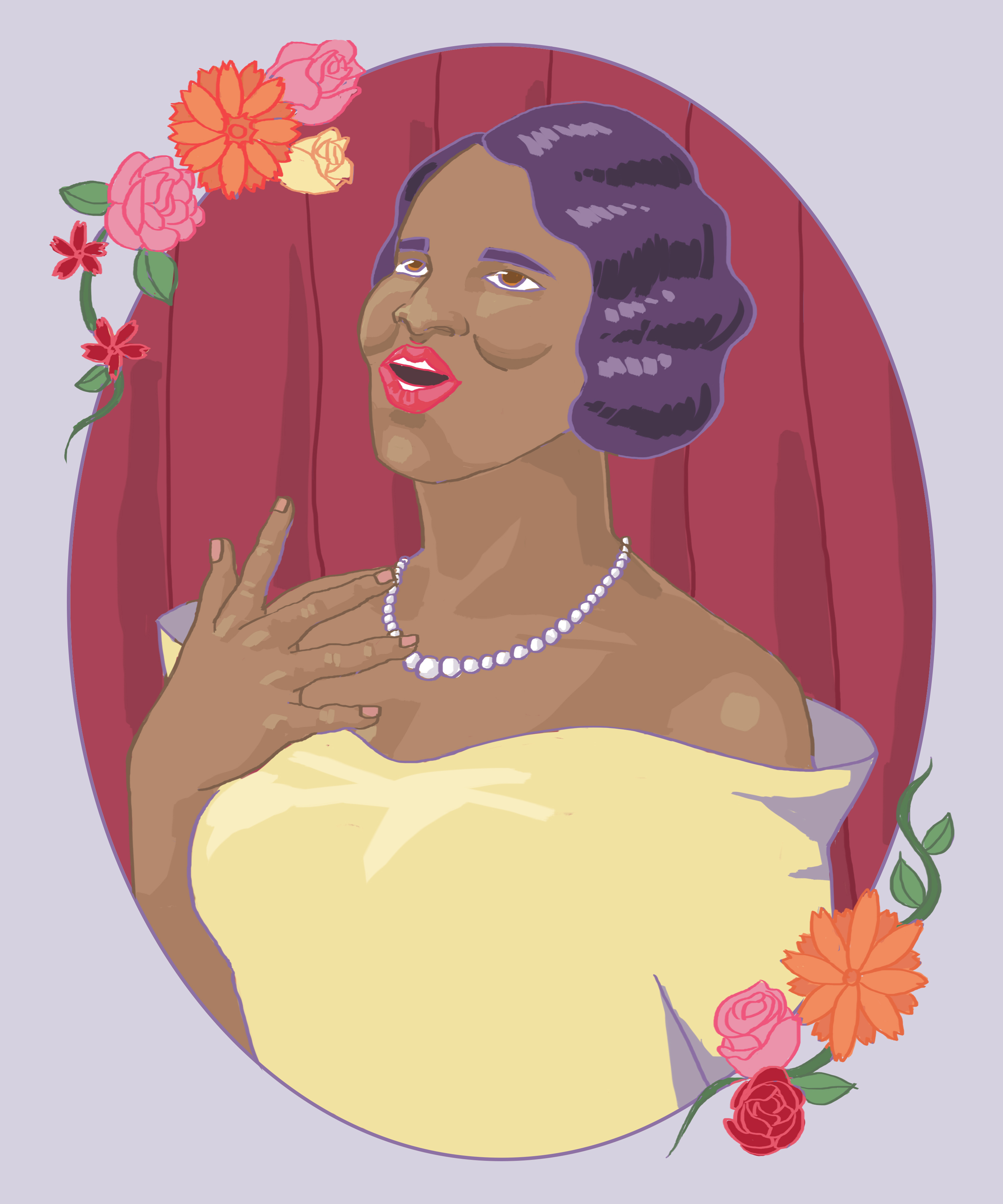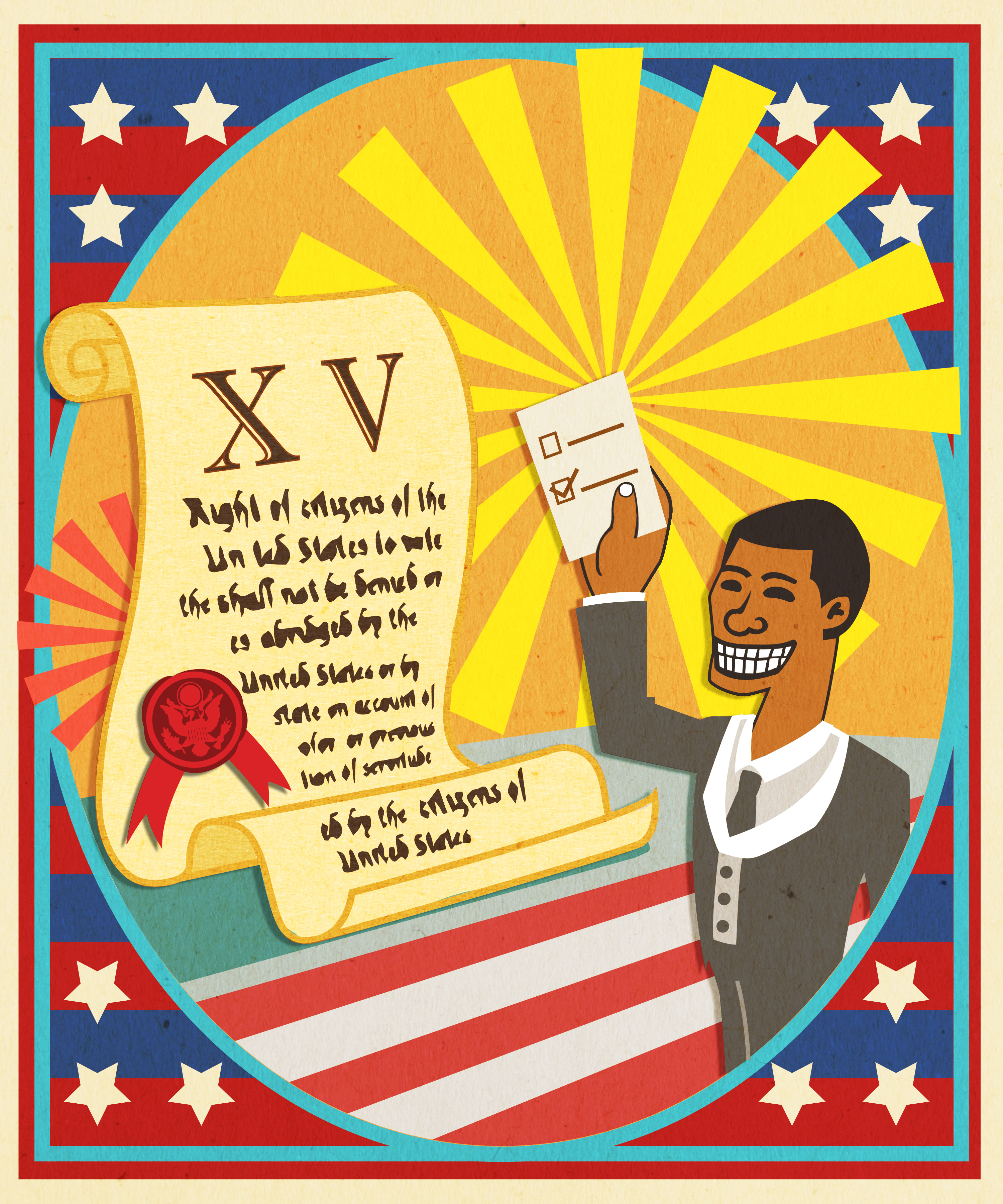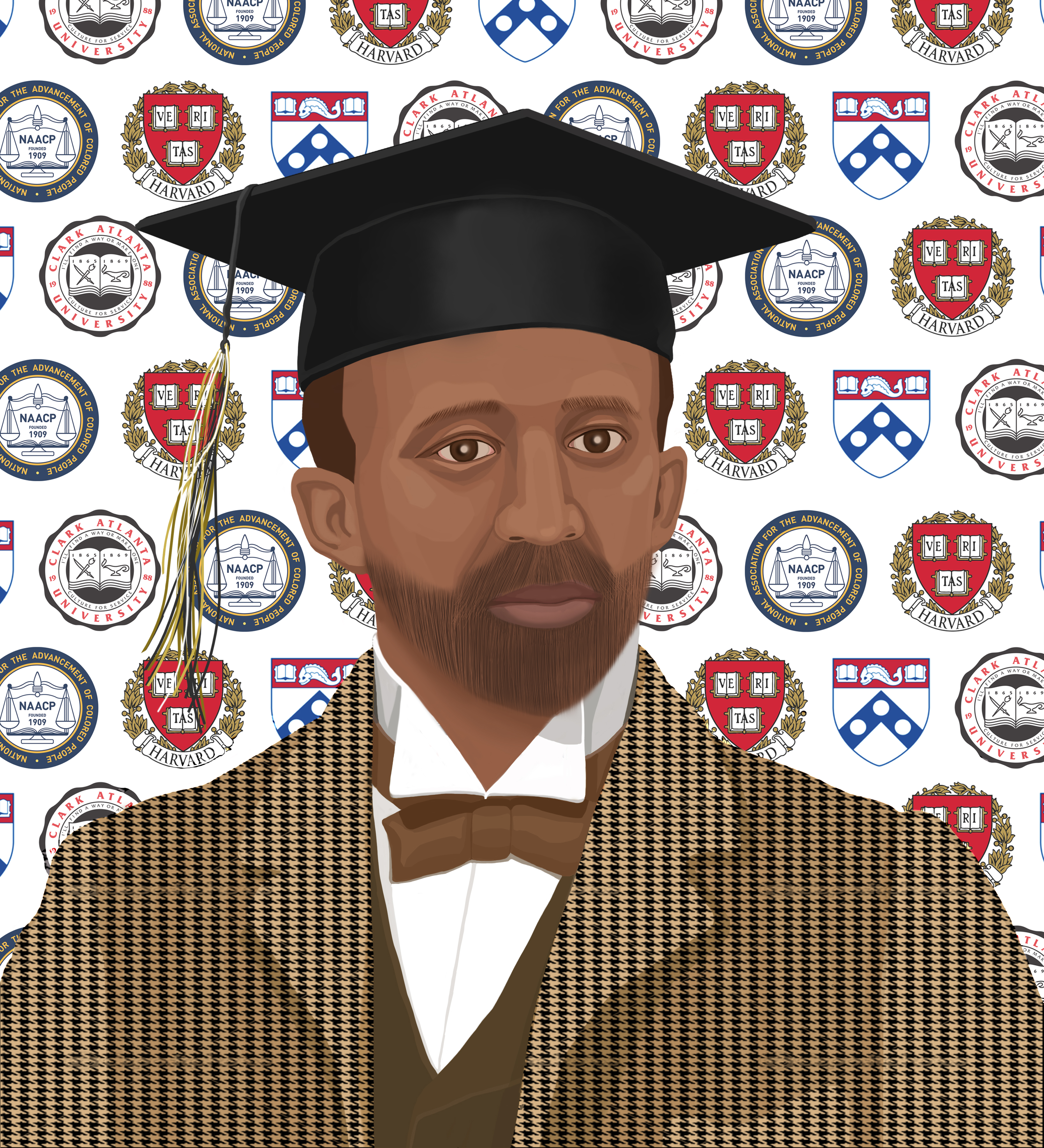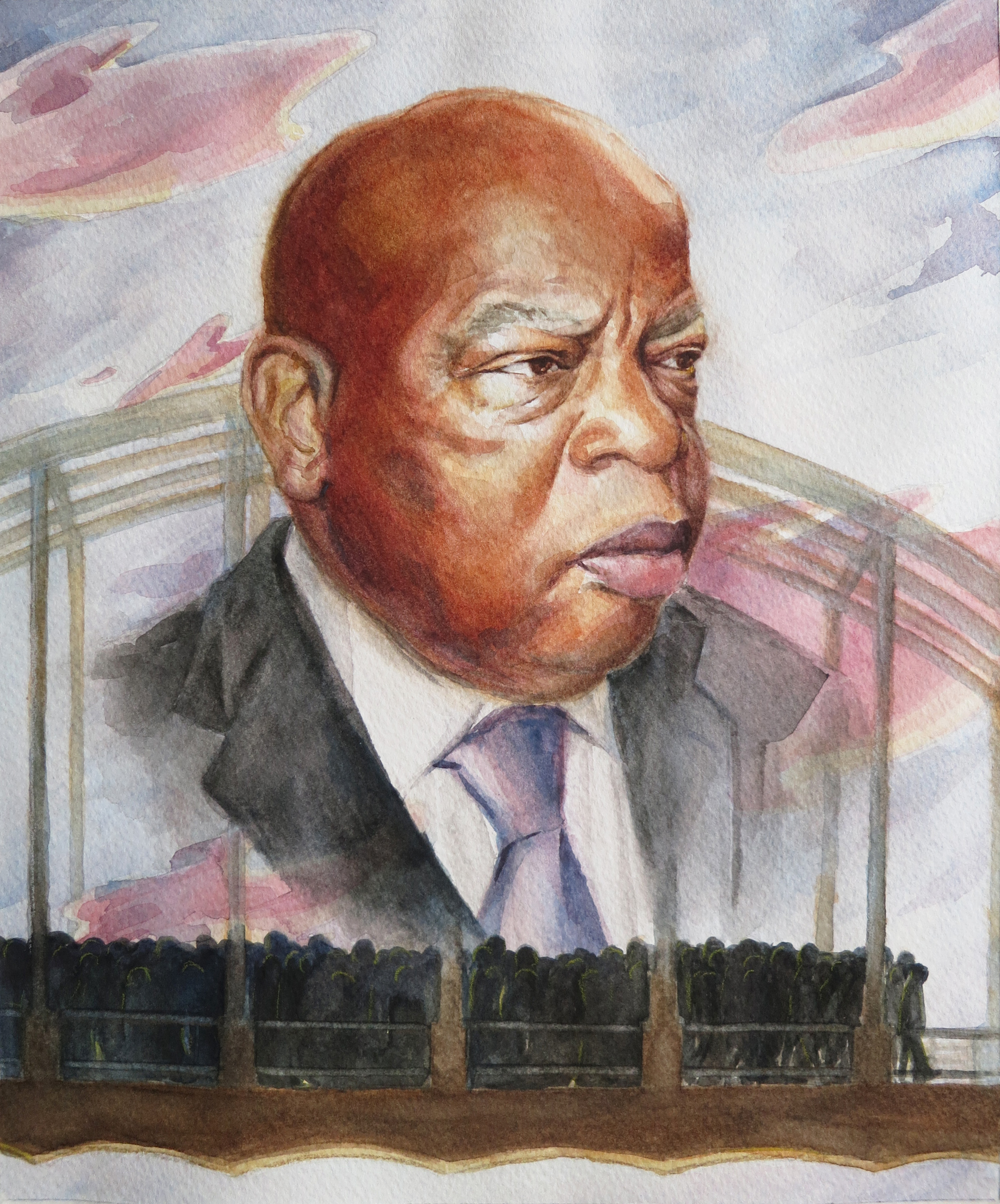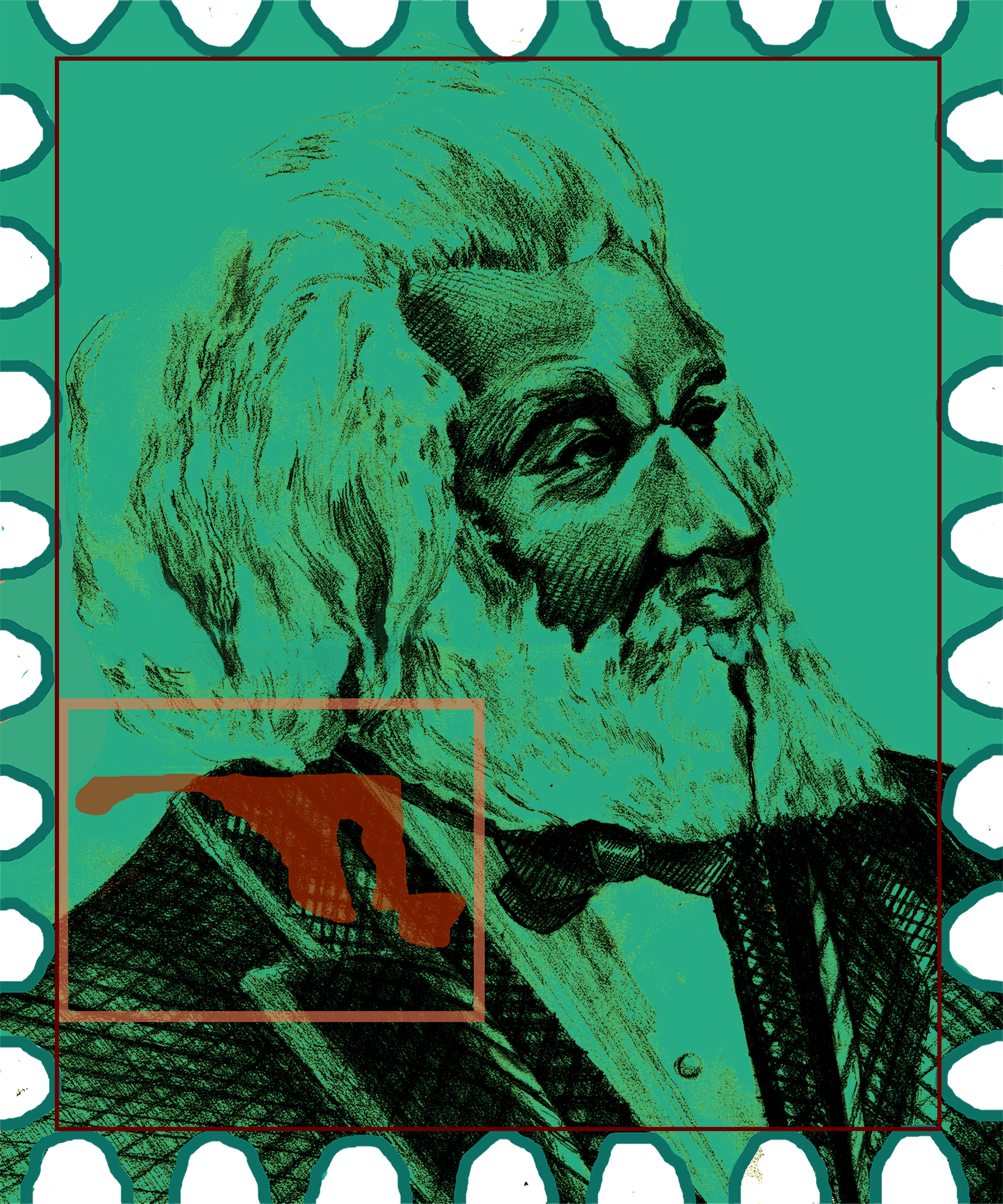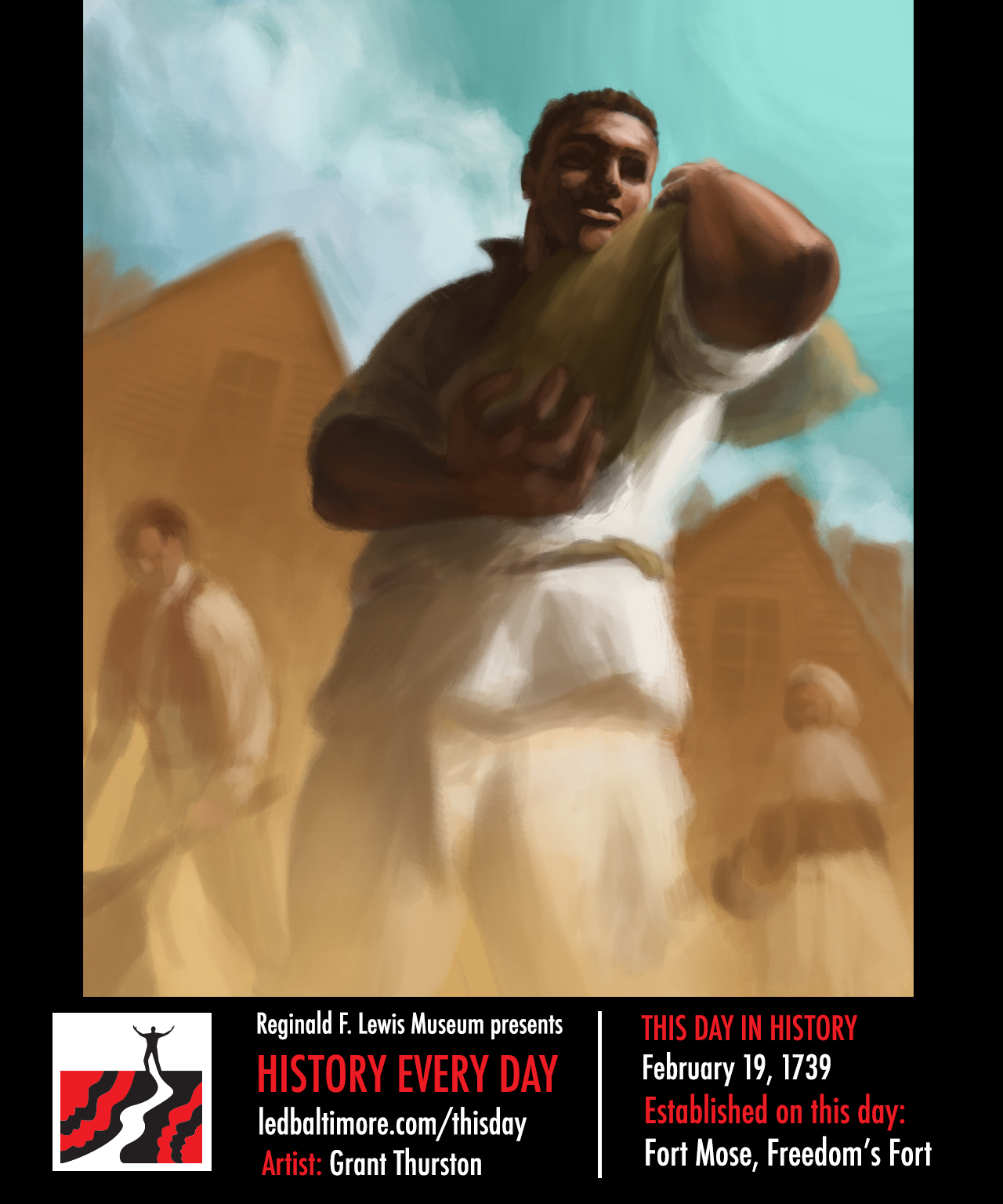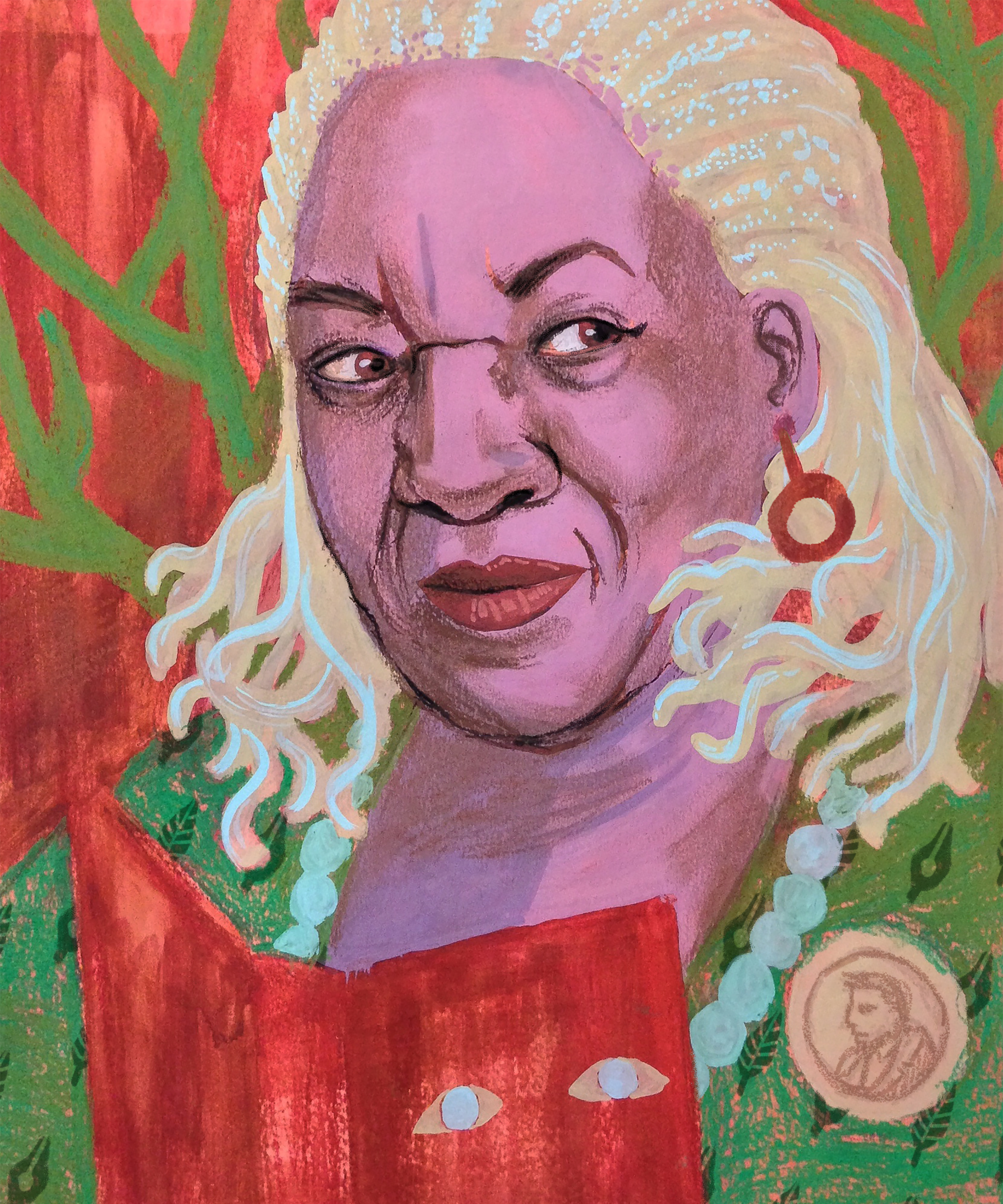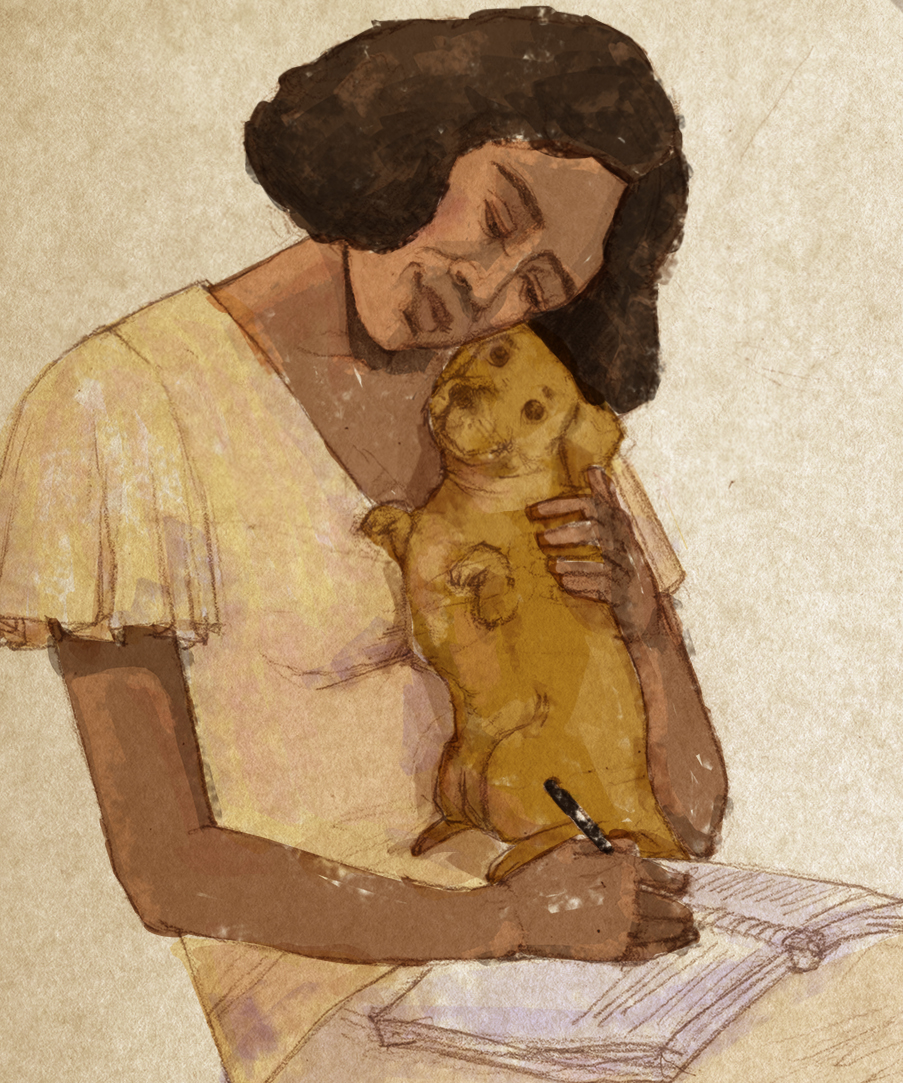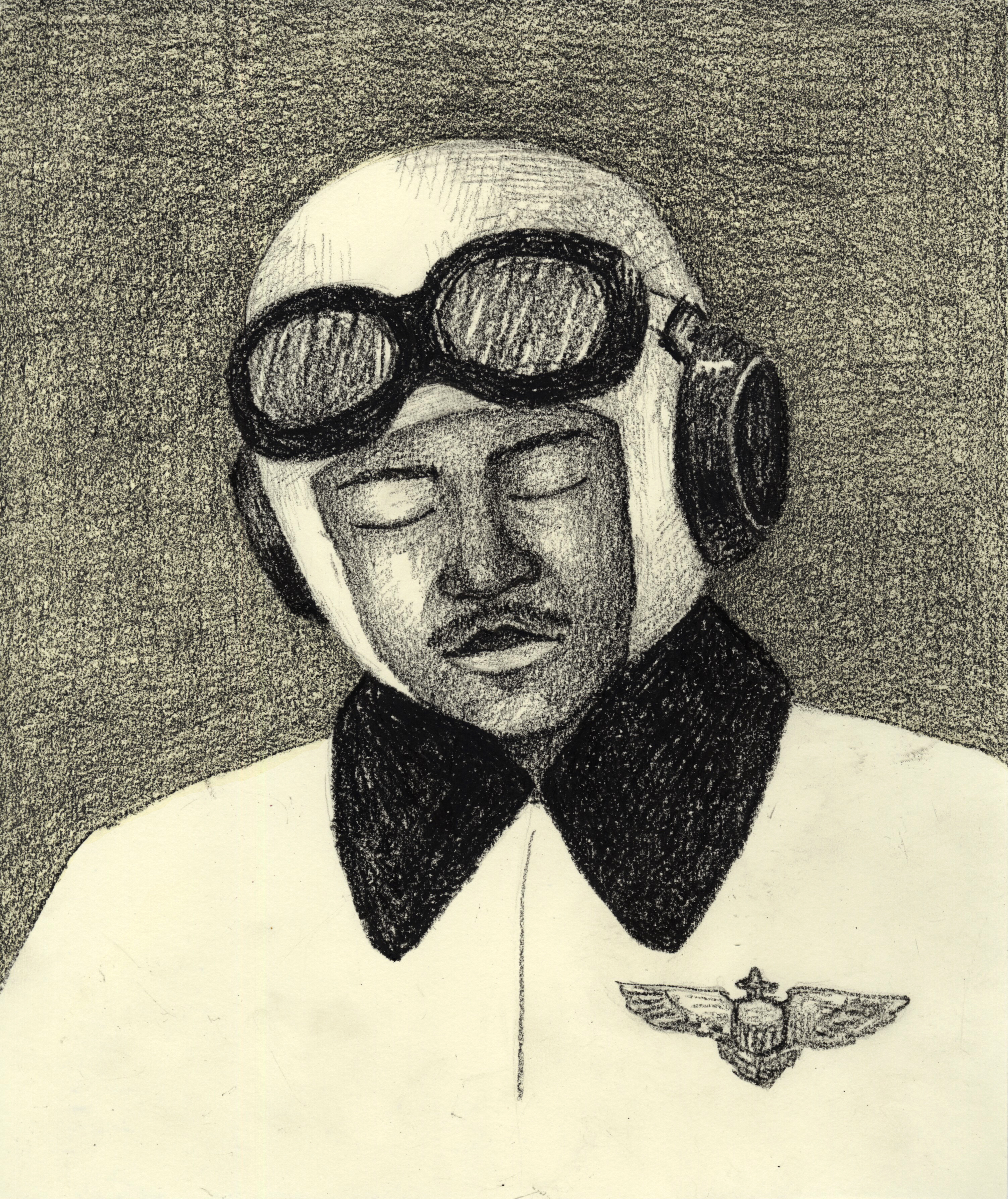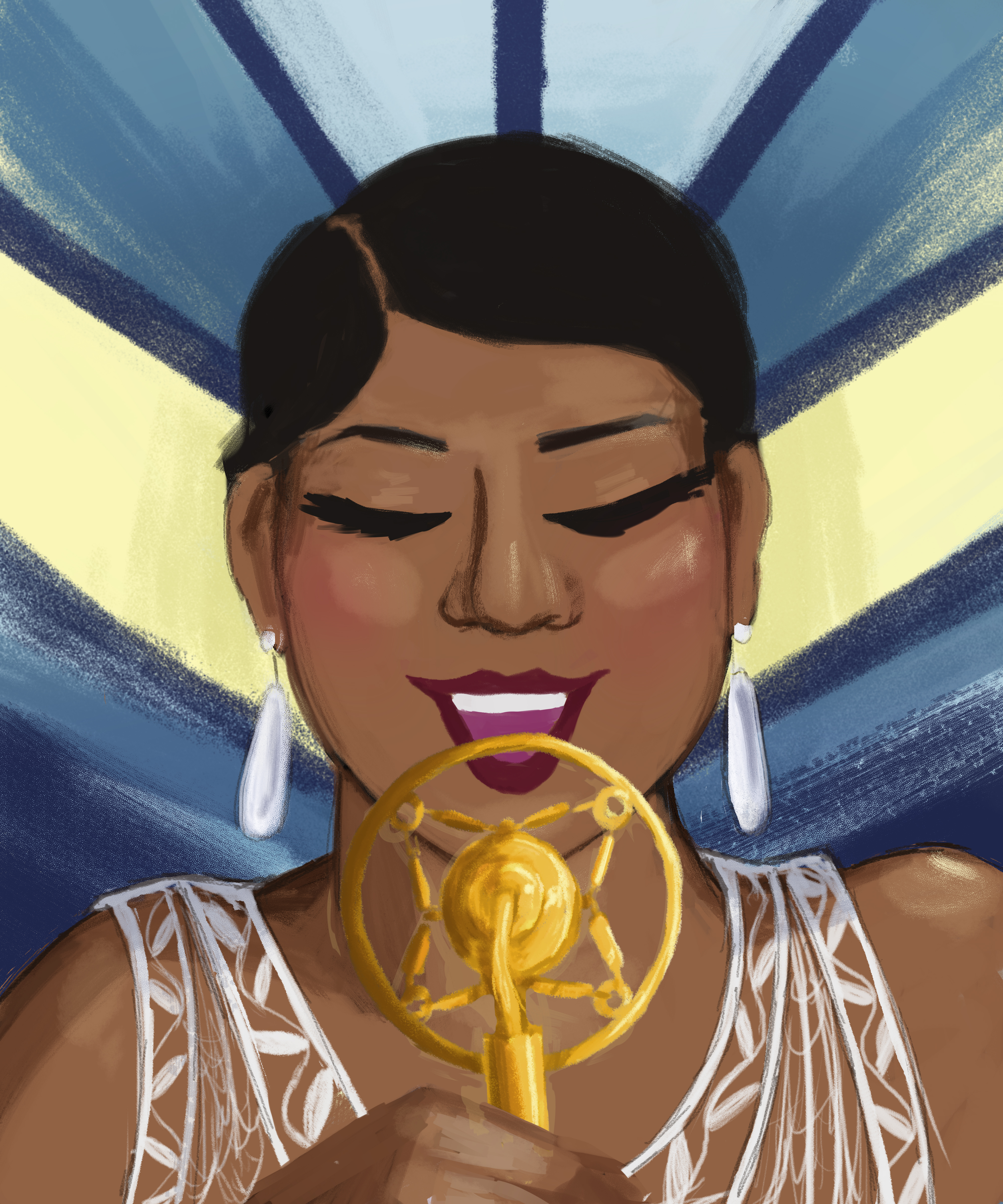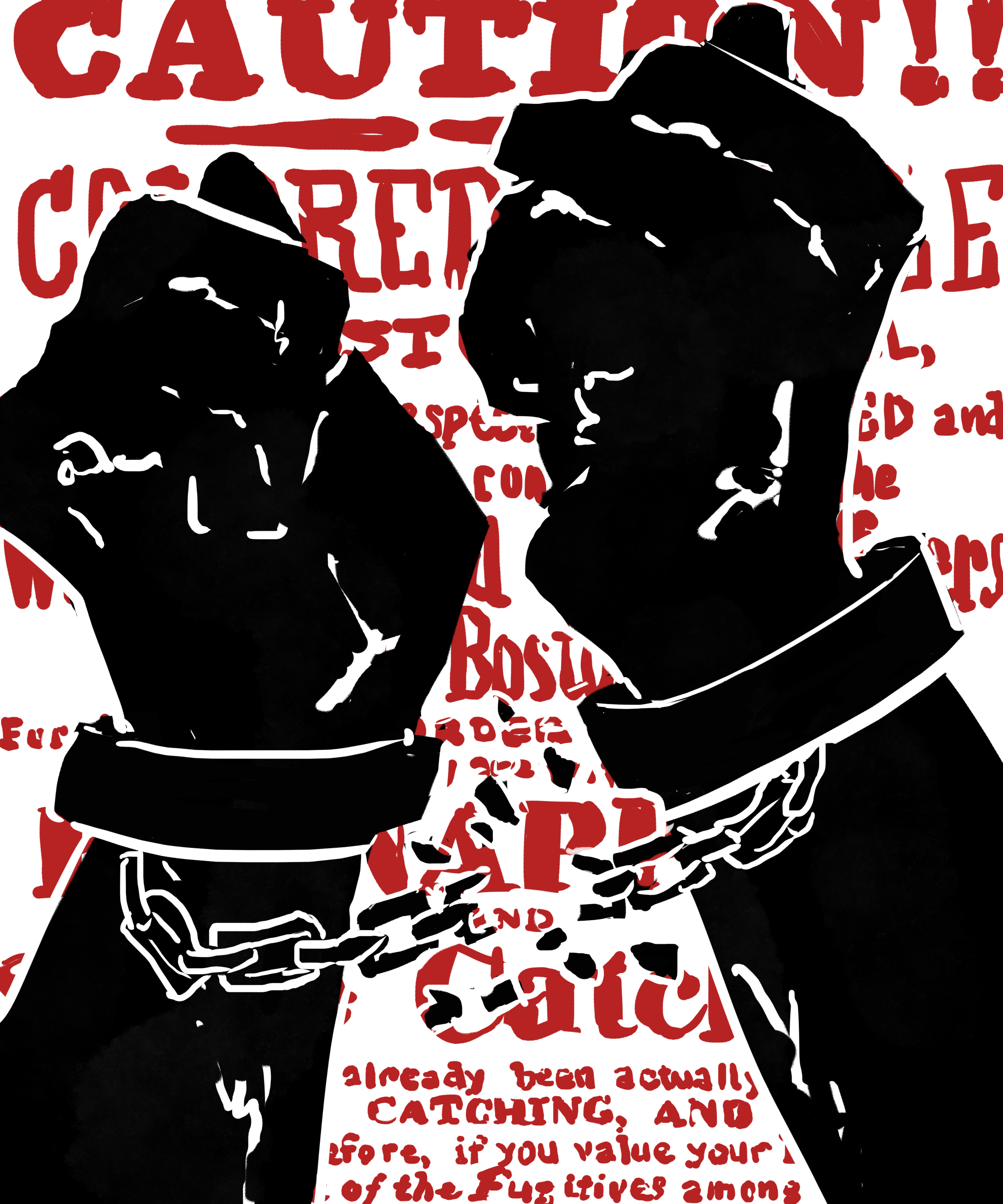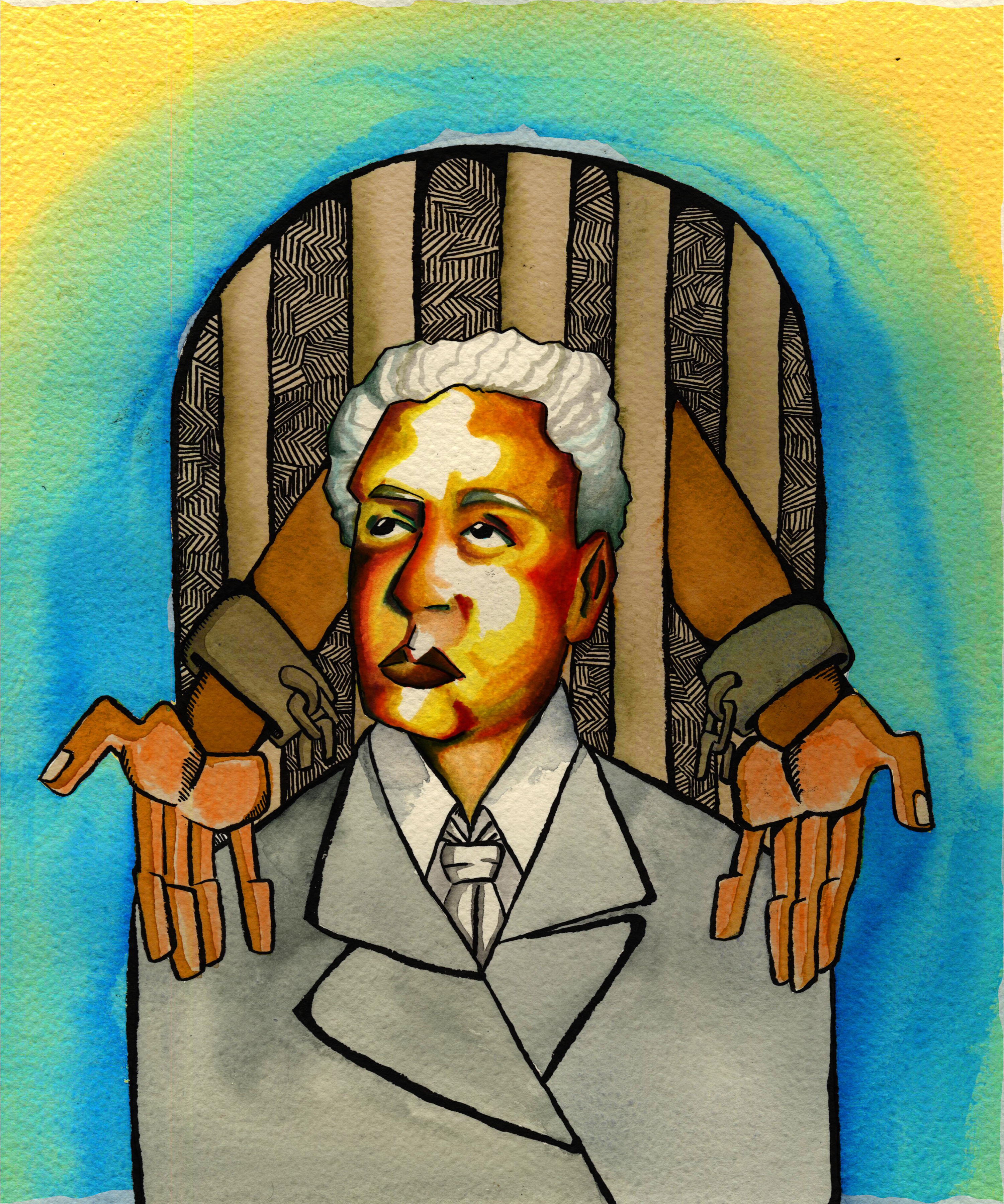History Every Day
History is made by African Americans, and Americans, year round. Our past is made up of the every day actions we do, big and small, that make an impact into tomorrow. From February 15 – March 15, the Reginald F. Lewis Museum in partnership with LED Baltimore screened works by MICA students in Illustration that related to an historic event that day. The 52’ screen is located next to Baltimore’s Penn Station.
This Day in History
Founding of the American Negro Academy
The American Negro Academy (ANA) was Founded in Washington, D.C. by 78-year-old Reverend Alexander Crummell. It was an organization of black intellectuals who through their scholarship and writing were dedicated to the promotion of higher education, arts, and science for African Americans as part of the overall struggle for racial equality.”
Source Citations
http://www.blackpast.org/aah/american-negro-academy-1897-1924
Garrett Morgan: INNOVATION & INVENTION
This day in history marks the birth of inventor, entrepreneur and publisher Garrett Morgan in Paris, Kentucky. Two of Morgan’s most noted inventions were a gas mask and an improvement on the traffic signal. In 1916, Morgan’s “safety hood” captured national attention when he and his brother rescued miners trapped in a tunnel beneath Lake Erie. In 1923, Morgan’s improvement on the traffic signal called the G.A. Morgan Safety System included a caution indicator for all traffic to stop at the same time. Morgan was inspired to create this system after witnessing an accident between a horse carriage and a car.
Source Citations
National Archives
www.archives.gov
Founding of the Freedmen’s Bureau
On this day in history the federal government established the Freedman’s Bureau to assist the plight of ex-slaves through labor, education, medical assistance and other essential services. Established in the aftermath of the Civil War, the records from the bureau are an important collection used by historians and genealogists to understand the experiences of African Americans from slavery to freedom.
Source Citations
National Archives
www.archives.gov
Claudette Colvin
On this day in history 15 year old Claudette Colvin refused to give up her seat aboard a public bus in Montgomery, Alabama and was arrested 9 months before Rosa Parks. Colvin’s inspiration came from learning about famous figures in black history including Harriet Tubman and Sojourner Truth.
Although local civil rights leaders organized an official boycott around the action taken by Rosa Parks, in 1956 Colvin became one of 4 plaintiffs in the case Browder V. Gayle which overturned bus segregation in Alabama. Colvin’s story was most recently captured in the award winning book Claudette Colvin: Twice Toward Justice by Phillip Hoose,
Source Citations
Claudette Colvin: Twice Toward Justice by Phillip Hoose. NY: Melanie Kroupa Books, 2009.
Freedom Comes to Pennsylvania
On this day in history the State of Pennsylvania passed an Act for the Gradual Abolition of Slavery. The act provided for the freedom of persons of African descent upon reaching age 28. All enslaved persons were to be registered annually until they were freed.
Although the number of slaves in Pennsylvania was never large, by 1700 the state had1,000 enslaved persons in a population of 30,000 people. In 1688 a Quaker group from Germantown community wrote what is believed to be the first written protest letter advocating for the abolishment of slavery.
Source Citations
Black History in Pennsylvania
www.portal.state.pa.us
The American Revolutionary War
www.revolutionary-war.net
Phillis Wheatley: An American Colonial Poet
On this day in history Boston poet, Philiss Wheatley, a first generation African to America was lauded by General George Washington for a poem she penned in his honor. Brought to Boston as an enslaved girl, Wheatley made a name for herself in the colonies and among literate audiences of the day. She was the first African American woman to publish a book of poems in the colonies and the third American woman to publish a volume of poetry. Although her poetry and writing on Africa and slavery is considered controversial her talent and influence is recognized by both her defenders and detractors. Freed after her first book of poetry Wheatley married and became the mother of 3 children all whom died in infancy. Wheatley died at the age of 31.
From George Washington to Phillis Wheatley, 28 February 1776
To Phillis Wheatley
Cambridge February 28th 1776.
Mrs Phillis,
Your favour of the 26th of October did not reach my hands ’till the middle of December. Time enough, you will say, to have given an answer ere this. Granted. But a variety of important occurrences, continually interposing to distract the mind and withdraw the attention, I hope will apologize for the delay, and plead my excuse for the seeming, but not real, neglect.
I thank you most sincerely for your polite notice of me, in the elegant Lines you enclosed; and however undeserving I may be of such encomium and panegyrick, the style and manner exhibit a striking proof of your great poetical Talents. In honour of which, and as a tribute justly due to you, I would have published the Poem, had I not been apprehensive, that, while I only meant to give the World this new instance of your genius, I might have incurred the imputation of Vanity. This, and nothing else, determined me not to give it place in the public Prints. If you should ever come to Cambridge, or near Head Quarters, I shall be happy to see a person so favoured by the Muses, and to whom nature has been so liberal and beneficent in her dispensations. I am, with great Respect, Your obedt humble servant,
G. Washington
Source Citations
American Memory (The Library of Congress)
http://memory.loc.gov/
Poetry Foundation
www.poetryfoundation.org
Sloan, Irving J. Blacks in America, 1492-1970. Dobbs Ferry, NY: Oceana Publications, 1971.
Black Women in America. NY: Oxford University Press, 2005.
MARIAN ANDERSON: CONCERT SINGER EXTRAORDINAIRE
This day in history marks the birth of opera singer and icon Marian Anderson (1897-1993) in Philadelphia, PA. Anderson was privately trained as a concert singer and began touring Europe in the early 1930s and by 1935 she returned to U.S. and became a sought after concert performer. In 1939 Anderson made national headlines when she was refused permission to sing at Constitution Hall and instead performed “My Country Tis of Thee” before some 75,000 people on the steps of the Lincoln Memorial.
Anderson became a trailblazer for African American concert singers on many fronts. In 1955, Anderson became the first African American opera singer to perform with the Metropolitan Opera in NY. She also performed at the inaugurations of President Dwight D. Eisenhower and John F. Kennedy. During the Civil Rights Movement she gave numerous concerts supporting civil rights organizations.
Source Citations
The Black Past
www.blackpast.org
Black Women in America. NY: Oxford University Press, 2005.
The passage of the 15th Amendment by the U.S. Senate
This day in history marks the passage of the 15th amendment to the constitution by the U.S. Senate which extended the right to vote to African American men. Although African Americans particularly in the South would be deterred from voting through the use of poll taxes, literacy tests and other means, the amendment represented a milestone in the journey to equality
The historic colored lithograph above includes an image of Baltimore’s famous parade held by the African American community in commemoration of the 15th amendment. Held in May of 1870, marchers are captured parading in view of the Washington Monument.
Source Citations
Library of Congress
www.loc.gov
A new champion is crowned
On this day in history 22 year old Cassius Clay defeated veteran boxer Sonny Liston at the Miami Convention Center for the heavyweight championship of the world. Within days Clay announced that he was a member of the Nation of Islam and changed his name to Muhammad Ali.
Ali was declared the winner in the 7th round after a technical knockout when Liston failed to answer the bell.
A fictional account of the aftermath of this event has been made into a play “One Night In Miami” directed by Kwame Kwei-Armah currently playing at CenterStage through 2/8/15.
Source Citations
The Ring Magazine
http://ringtv.craveonline.com
ESPN Classic
http://espn.go.com/classic
Lauryn Hill
On this day in 1999 recording artist Lauryn Hill received 5 Grammy awards which was a record at that time for female artists. Hill’s awards included best new artist and album of the year for “The Miseducation of Lauryn Hill” (the first hip hop album to win album this honor). Hill’s contribution to hip hop helped make the genre popular for mainstream and international audiences.
Source Citations
Time Magazine
Content.time.com/time/covers
The New York Times
www.nytimes.com
W.E.B. DeBois and The Souls of Black Folk
This day in history marks the birth of scholar, writer, activist and sociologist W.E.B. DuBois (1868-1963) in Great Barrington, Massachusetts.
A graduate of Fisk and Harvard Universities, DuBois later taught at the University of Pennsylvania and Atlanta University. As a scholar DuBois wrote such seminal works as The Souls of Black Folk (1903), The Philadelphia Negro (1899) and Black Reconstruction in America (1935).
As a leader DuBois championed the cause of civil rights and denounced all forms of white racism. His commentary and opinions often pitted him at odds with leaders like Booker T. Washington who promoted integration at all costs. As one of the founders of the NAACP, DuBois was the editor of the organization’s Crisis Magazine from 1904 to 1934.
In hi senior years, DuBois was an avid supporter of Pan Africanism and became a member of the socialist and later community party. DuBois permanently settled in Accra, Ghana where he worked on the Africana Encyclopedia. He died one day before the March on Washington
Source Citations
The Black Past
www.blackpast.org
First Flight of The Cloud Club
This day in history, February 22, 1941, marks the first flight from Croom Air Field, in Prince George’s County operated by an African American aviation group, the Cloud Club. Members of the club initially began flying out of Beacon Field in Alexandria, Virginia. When they were accused of violating rules and procedures they leased a potato field in neighboring Prince George’s County, MD and soon established the Columbia Air Center at Croom.
Source Citations
http://historypgparks.com
Congressman John Lewis:
Championing Civil Rights
This day in history marks the birth of Congressman John Lewis near Troy, Alabama in 1940. A pioneering civil rights activist, Lewis organized sit-ins at segregated lunch counters while a student at Fisk University and took part in the Freedom Rides in 1961. As Chairman of the Student Non-violent Coordinating Committee Lewis helped organize the March on Washington. In 1965 during a march from Selma to Montgomery, Alabama to demonstrate for voting rights, Lewis and Hosea Williams, led protestors across the Edmund Pettus Bridge where they were attacked by state troopers. Known as “Bloody Sunday”, the event became a clarion call to address inequities that permeated life in the South. Elected to Congress in 1986 representing the fifth district in Georgia, Lewis is a member of the House, Ways & Means Committee and the Senior Chief Deputy Whip for the Democratic Party. His most recent book is entitled Across That Bridge: Life Lessons and a Vision for Change.
Source Citations
http://johnlewis.house.gov/
The Death of a National Leader
Frederick Douglass (1818? – 1895)
This day in history marks the death of Marylander Frederick Douglass, an orator, writer and statesman who made his greatest contribution as an abolitionist. Douglass was both an effective orator and writer who used his own life experience as a slave growing up in Talbot County and Baltimore, Maryland to speak out against the injustices and brutality of the institution of slavery.
Douglass wore many hats during the course of his life including recruiting black men for the Union Army, serving as a U.S. Marshall and Recorder of Deeds for the District of Columbia and Consul General to Haiti. He was also an active supporter of women’s rights. Many consider Frederick Douglass to be the most prominent African American of the twentieth century. (The death of Frederick Douglass appears on many black history calendars. Like Harriet Tubman and many former slaves Douglass never accurately knew the date of his birth.)
Source Citations
African American Leaders of Maryland: A Portrait Gallery by Suzanne E. Chapelle & Glenn O. Phillips. Baltimore, MD: Maryland Historical Society, 2004.
The Black Past
www.blackpast.org
Fort Mose, Freedom’s Fort
On this day in history the Governor Spanish Florida announced the establishment of a free black town at Fort Mose (Gracia Real de Santa Teresa de Mose). Located near St. Augustine, the community is considered the first free black settlement in the country. The residents of Fort Mose were largely made up of escaped slaves from the Carolinas many of whom were skilled workers and farmers. For 25 years, the community was a sanctuary for people of African descent seeking freedom.
Source Citations
Fort Mose Historic Park
www.floridastateparks.org
The Black Past
www.blackpast.org
Born on this day
February 18th marks the birth of 3 famous African American female writers including the Nobel Prize winner Toni Morrison (1931), noted feminist writer Audre Lorde (1934) and award winning writer Bebe Moore Campbell.
USS Jesse L. Brown Commissioned
On this day in 1973 the SHIP USS Jesse L. Brown was commissioned by the U.S. Navy, in memory of the first African American naval fighter pilot. After flight school, Brown was assigned to Fighter Squadron 32 and received his commission in April of 1949. In December of 1950, Brown was killed during one of the fiercest battles of the Korean War. In 2013 veteran aviator Thomas Hudner who survived the battle traveled to Korea hoping to find Brown’s remains but was unsuccessful.
Source Citations
Source Citations
The New York Times
www.nytimes.com
Bessie Smith: Queen of the Blues
On this day in history February 16, 1923 Bessie Smith “makes her first recording of “Down Hearted Blues” for Columbia Records accompanied by pianist Clarence Williams. The song sold over 780,000 copies and is considered among the top 500 songs that shaped rock music (according to Rock and Roll Music Hall of Fame).
Source Citations
Riverwalk Jazz Collection
http://riverwalkjazz.stanford.edu/program
Defending Freedom: The Shadrach Minkins Story
This day in history Shadrach Minkins was arrested and jailed in Boston, MA under the Fugitive Slave Act of 1850. Minkins who escaped from slavery in Norfolk, VA had been gainfully employed as a waiter at an upscale restaurant in Boston for a year before the arrest. The day of his arrest, hundreds of local citizens came to his aid where they freed him from the courthouse where he was being held. After being set free Minkins made his way to Canada. The Minkins story became a pivotal moment for northern abolitionists in the fight against slavery.
Source Citations
Long Road to Justice: the African American Experience in the Massachusetts Courts
www.masshist.org

